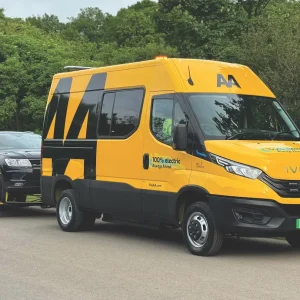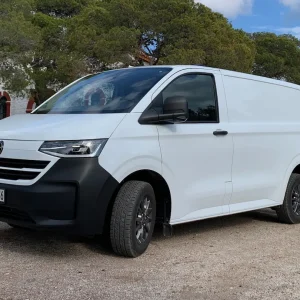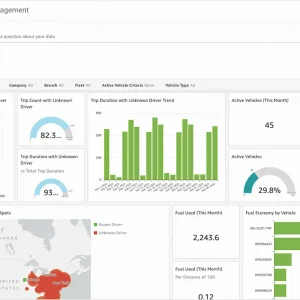Fiat Professional has an image problem. That’s the diagnosis of Domenico Gostoli, the brand’s newly installed head of EMEA (Europe, the Middle East and Africa).
Gostoli previously spent 15 years at Fiat Group-owned manufacturer Iveco and arrives at Fiat Professional just as it adopts its new slogan: “Charging to the front”.
“The perception of Fiat is not what Fiat feels it is,” says Gostoli.
“We have to improve our credibility.”
In particular in the UK he feels the brand undersells itself in terms of the excellence and efficiency of its Multijet diesel engines and in the improvement of its dealer network’s service options. (It offers a four-year 120,000 mile warranty)
With cost considerations on relatively low volume production dictating that the LCV industry is increasingly dominated by partnerships Gostoli points out: “Many brands sell the same vehicle,” and asks: “What is your unique selling point?”
For the Ducato (built on the same platform as the PSA brands’ Citroen Relay and Peugeot Boxer) he claims it is a superior engine.
“Powertrains are our strongpoint,” says Gostoli.
But he adds that a brand becomes defined by a cluster of values including the service and financial support it offers.
“It is not [just] the van.” he says, “because it’s from the same plant, made by the same people” [as product from other manufacturers].
Illustrating his point with the image of a fish jumping from a small to a large bowl, Gostoli says Fiat needs to be clear about “where we are,” and “where we want to go”.
To meet customer expectations he insists the company needs specialisation at all levels and be aware of “the affect of each action on the customer”.
“We are not playing a good game,” Gostoli admits, in promoting the potential efficiencies of Fiat Professional’s engines and in educating fleets as to how driver training, with the assistance of the brand’s Eco:Drive telematics system, can drastically improve fuel consumption.
He claims that if Fiat Professional could get fleet managers to test its vans then it would win more tenders.
“We have one of the lightest 3.5t vans in the market – 50% of vans are only 60% loaded so if the engine is good and the van is lighter, you save money,” he explains.
After nearly going to the wall in 2004 the Fiat Group moved towards becoming a giant of the automotive industry when it began to merge with Chrysler in 2009 – a process finally completed last year.
The group now operates in 150 markets, has 165 plants across the world and a workforce of 232,165 people.
This empire includes two major LCV factories in Bursa, Turkey and Atessi, Italy.
Across Europe the van operation is getting stronger, with the Ducato large van leading the way followed by the Doblo Cargo light van.
Orders were up 13.4% in the first half-year, according to Gostoli, in a market up 9.9%.
Fiat Professional has ground to make up in the UK but boss Sebastiano Fedrigo says sales have increased steadily from 8620 in 2012 to 13,839 in 2013 and onto 14,927 in 2014.
Fedrigo says market share slipped back slightly year-on-year in the first half-year to 3.4% (although sales grew 5% to 6327, according to the SMMT) but puts this down to purchasing patterns with BT Fleet and Royal Mail having bought their vans last year, not this.
But he admits: “There is a lot of space to grow in the UK.”
Progress will be made, Fedrigo reckons, when Fiat Professional replaces its Scudo medium van in 2016 with a new product (as yet unnamed) made in conjunction with Renault.
The current Scudo is too small in a market that demands a load capacity of 8.0m3, he reasons.
“The [Ford Transit] Custom nailed it in terms of capacity,” he says and adds Renault and Vauxhall followed suit with their respective Trafic and Vivaro models.
The new Fiat model will be an Italian take on the Renault-developed van.
“We will have a fighting chance,” he says.
Also coming to market in 2016 will be a facelifted Fiorino compact van and the brand’s pick-up debut based on the Mitsubishi L200.
Fiat Professional is part of the CNH Industrial conglomerate (itself owned by Fiat Industrial), which has a huge presence in the construction industry. This, claims Gostoli, will provide a ready market for the pick-up in the Middle East especially.
Having sacked 52 dealerships in 2011 Fiat Professional has overhauled its network.
It now has 73 sales points in the UK (included in a total of 153 service outlets) and intends to reach 100 in 2017.
An area for improvement is increasing awareness of the brand’s models with used buyers.
“If a fleet changes from Ford to Fiat then used buyers will do the same in time,” Fedrigo claims.
Gostoli puts it succinctly: “Our problem is the hunting of new customers.”





